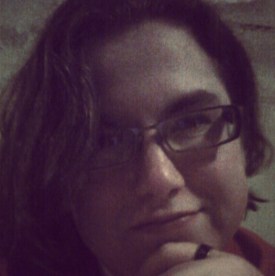On Friday, GLSEN released the State Reports for their 2011 National School Climate Survey. This national, peer-reviewed study gauges the experiences of LGBT students in 6th – 12th grades with school violence. Since 2007, GLSEN has issued a State Report for Pennsylvania that takes into account only respondents from the Keystone State. According to these reports, rates of physical assault and violence based upon sexual orientation and gender identity have been steadily declining in Pennsylvania schools since 2007. There has been a slight decline in verbal harassment, but it is still extremely prevalent, with 89% of students in 2011 reporting the regular use of homophobic slurs in school.
 We know that these reports are limited to the experiences of the respondents attracted. In each National School Climate Survey – thousands of students respond from both public and private schools. The report does not provide controls for geographic diversity – so while one year a state may have more rural respondents and another more urban respondents: the numbers can be skewed. However, these are statistically significant indicators of school climates throughout the state. Anecdotal evidence seems to suggest that school violence is as harmful as ever toward LGBT students in Pennsylvania. These studies however, are the leading baseline we have to establish the current state of LGBT youth in Pennsylvania schools.
We know that these reports are limited to the experiences of the respondents attracted. In each National School Climate Survey – thousands of students respond from both public and private schools. The report does not provide controls for geographic diversity – so while one year a state may have more rural respondents and another more urban respondents: the numbers can be skewed. However, these are statistically significant indicators of school climates throughout the state. Anecdotal evidence seems to suggest that school violence is as harmful as ever toward LGBT students in Pennsylvania. These studies however, are the leading baseline we have to establish the current state of LGBT youth in Pennsylvania schools.
From 2007 to 2011, rates of physical assault based upon sexual orientation fell from 27% of respondents to 15% of respondents. Similarly, physical assault based upon gender identity fell from 18% in 2007 to 8% in 2011. GLSEN defines physical assault as being “punched, kicked, or injured with a weapon.” Rates of physical harassment, which is defined as being “pushed or shoved,” have also fallen over the past few years, but remain much higher than rates of assault. Physical harassment based upon sexual orientation fell from 52% in 2007 to 32% in 2011, and physical harassment based upon gender identity fell from 36% in 2007 to 23% in 2011.
For the new 2011 State Report, GLSEN found that 60% of Pennsylvania students who experience harassment in schools did not report it to a school authority, and of those who did, only 36% of students saw an effective intervention being taken by school staff. Only 7% of students in 2011 went to a school with a comprehensive bullying policy which protected sexual orientation and/or gender identity. While almost all students could identify one LGBTQ positive staff member at their school, only 37% could identify six or more.
Pennsylvania students in 2011 were subject to more verbal harassment than students nationwide. Nationally, 85% of students reported the use of the term “gay” in a negative way on a regular basis. In Pennsylvania, this figure rises to 96%. Similarly, 71% of students nationwide heard anti-gay slurs frequently, compared to 89% of students in Pennsylvania. Rates of physical harassment and assault in Pennsylvania are similar to the national average.
The KSV has borrowed the graphs below from PSEC which show how Pennsylvania compares to other similar states: Massachusetts, North Carolina, New Jersey, and Texas. Across many of the questions asked, this comparative data suggests that Pennsylvania schools are slightly more dangerous for LGBT students than the national average.
Without proper intervention from school staff, harassment at all levels will likely continue. Decreased rates of physical violence is a great improvement within Pennsylvania schools, but more action needs to be taken to decrease verbal abuse. While it may not leave physical marks, name calling and other harassment can affect students for years to come.
Students Hearing Biased Language Relating to Gender Identity and Expression
Students Hearing Gay in a Negative Way
Students Hear Negative Remarks from School Staff – Sexual Orientation
Students Hear Negative Remarks from School Staff – Gender Identity
Verbal Harassment – Sexual Orientation
Verbal Harassment – Gender Identity
Physical Harassment – Sexual Orientation
Physical Harassment – Gender Identity
Physical Assault – Sexual Orientation
Physical Assault – Gender Identity
Students Not Reporting Incidents of Bullying to School Staff
Students Finding Effective Intervention in Bullying by School Staff















